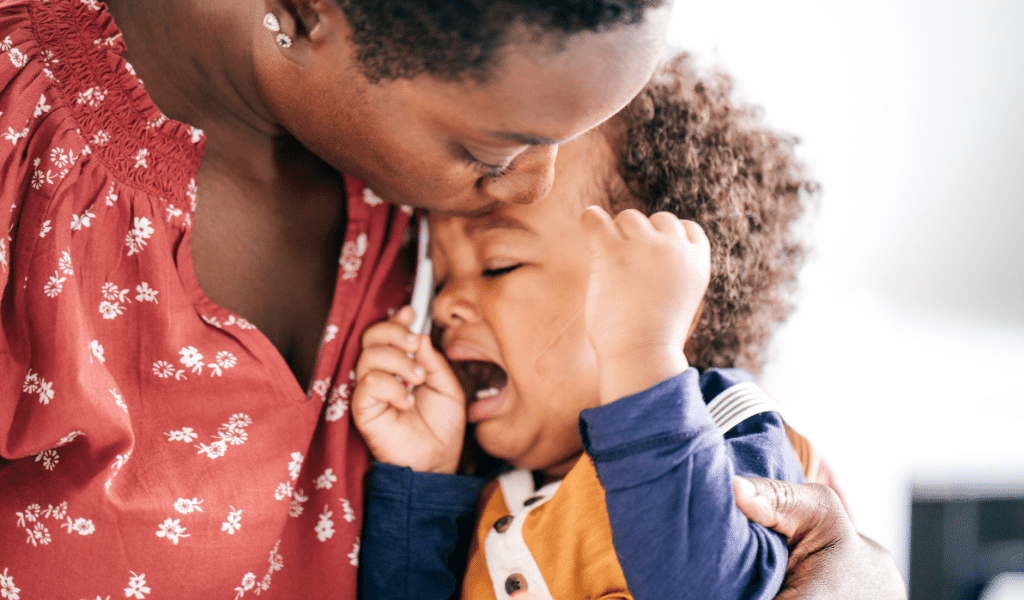We hear a lot about self-regulation for children and how we need to help them to learn these skills – but how can we do that? In this blog post, wellbeing expert, Sonia Mainstone-Cotton shares her top tips to self regulate and stay calm when children have tantrums:
I work with children who have high social emotional and mental health needs. Many of them have many moments when they are dysregulated and having uncontrollable tantrums – when life is too much and they cannot cope. But what about when we are struggling to cope with their dysregulation to? How can we stay regulated when the children we work with are so emotionally distraught? The only way we can support a child when they are dysregulated is through being regulated ourselves.

Just for a moment, I want you to imagine a scenario when a child you are looking after is having a major meltdown. There are lots of tears, some screaming, some hitting out. How are you feeling? What are the emotions you are experiencing? What is going on in your body?
On different days we will have a different reaction to this type of scenario, but it can be helpful to think about how we usually respond. When we can reflect on how we respond, then we are in a position to make some adjustments, if we need to, or plan for possible adjustments.
It is helpful if we can name and recognise the different emotions and feelings we are experiencing. We know it is important to help children to learn an emotional vocabulary and understanding, and we need to be able to model this. Brene Brown’s new book “Atlas of the heart” (2021) explores and names 87 different emotions. Through a large piece of research, she has found that the average number of emotions adults were able to name were three: happy, sad and mad. Her argument is that having a wide emotional language is vital for our ability to make sense of what is happening to us and around us.

Working with children is both rewarding but can also be challenging. If the children you are with are regularly experiencing moments of dysregulation, that can be extremely stressful for both you (and the child), but we know that children can only become calm and regulated when they have an adult with them who is calm and regulated. Here are a few ideas on how to regain your regulation if you feel yourself losing control.
Do a stop and notice moment. Take a few deep breaths, breathing from your belly, not from your chest. Notice where you are standing or sitting, notice how your shoulders feel, if they are raised try and lower them. By doing this kind of short, exercise you will begin to bring more oxygen into your blood supply, slowing your heart rate and lowering your stress levels.
Sometimes you just need to step away. If you can feel that your stress levels are escalating, and the breathing hasn’t helped, see if another adult can step in and give you a short break. In the teams I work with, we often describe this as a tag team: no one adult is the only one to deal with a distressed child, we will all tag team and take turns. This is offering support to the child and the adults.
We know that just 10 minutes in nature is enough to lower the stress levels for both children and adults. If you can step outside – and if it is possible to get the child out as well – even better.
I recommend all settings have hand cream available. If you can feel you are beginning to become very stressed, grab some hand cream and do a quick hand massage, you may also want to use this with the child. Positive touch is another good way to lower our stress level.

This may sound basic, but sometimes having a drink can calm us, my go to is chamomile tea. It is a simple act, but the act of sitting, drinking something warm can be calming and soothing. If you can see a colleague is supporting an upset child, and it is safe to do so, make them a cup of tea and pass it to them while they are sitting with the child. This will help them to know you have noticed what is happening, you are looking out for them and it will support their regulation.
These are ideas are all very simple, and you may have different ones you like to use. We must look after ourselves and work on our regulation, then we are in the best place to support the children we care for.
I share more ideas in my webinar for Kinderly Learn on “Self-regulation: How to stay regulated with dysregulated children” and in my new book “Supporting children with social, emotional and mental health needs in the early years” published by Routledge.

About the author
Sonia Mainstone-Cotton is an early years trainer and consultant, specialising in early years wellbeing. As a qualified mindfulness teacher and experienced nurture consultant, Sonia supports both children and adults with their emotional wellbeing.